Breaking Down Systemic Inequality in Voting and Housing for Black Americans
For generations, state and local governments systematically denied Black Americans access to educational resources and opportunities. It happened...
2 min read
 Aidan Kelly
:
1:30 PM on January 20, 2023
Aidan Kelly
:
1:30 PM on January 20, 2023
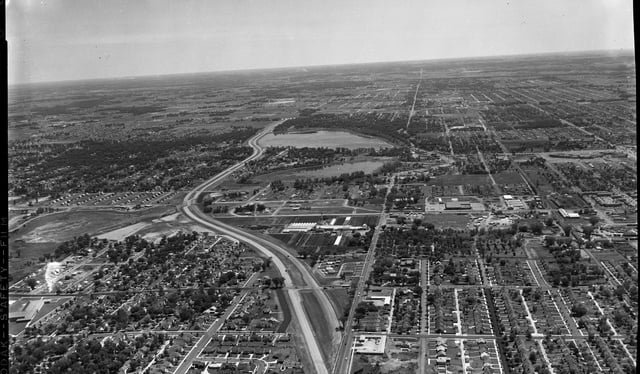
Twin Cities Habitat believes it’s important to learn from our national and local history of racist housing policies as we build for the future. This blog series explores the past, offers solutions for the future, and highlights ways you can take action.
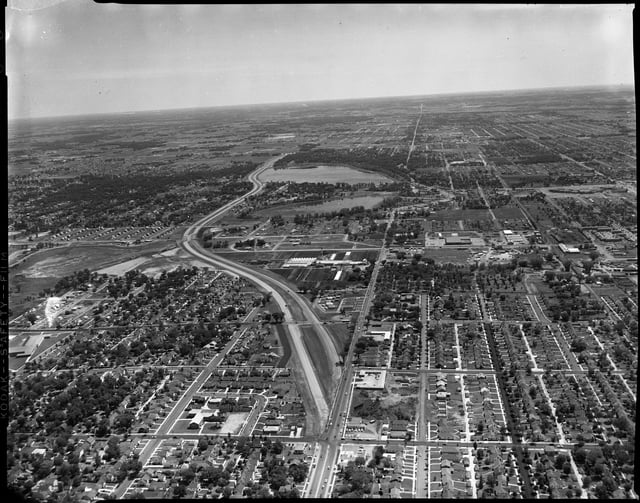
Human Toll: A Public History of 35W is a community-collaborative oral history and research project on 35W in South Minneapolis. It was presented as an exhibit at the Hennepin History Museum from September 2021 through December 31, 2022. It included a variety of personal stories, newspaper clippings, pamphlets, and maps in order to contextualize the full impact that the highway had on the South Minneapolis community.
When the government passed the Federal-Aid Highway Act of 1956, it set in course a series of events which would ultimately disperse thriving Black communities across the nation. In order to construct these highways, they needed to carve out large areas of major cities. Unfortunately, the local governments responsible for this task overwhelmingly chose to rip through the heart of communities of color.
Part of their reasoning was that they thought these communities would be the least resistant. Additionally, due to decades of prejudicial lending practices like redlining, their estimates of the value of the homes in these neighborhoods were far lower than what the same houses would have been in a predominately white neighborhood. This allowed the government to legally purchase homes at a reduced rate, regardless of whether or not the residents had any intention of selling them.
In a conversation with Twin Cities PBS, Research Advisor Dr. Ernest Lloyd discussed a conclusion he was able to draw from his work:
"From my research finding, what was interesting to me was that it didn't matter whether or not the Freeway was routed through a poor Black community or an upper middle-class Black community, the community was Black. And the freeway found them nonetheless." You can watch the rest of their interview here.
Even though this started with the construction of the highway system over 50 years ago, the effects are still being felt today. The displacement of the South Minneapolis communities and others like it is one of several factors that have led to Minnesota having the largest homeownership gap in the country.
Despite all of the progress that has been made in terms of equal opportunity homeownership efforts (learn more here and here), there are still many barriers that keep families from buying homes. By robbing these communities of their chance at generational wealth, the government took far more than just homes away from the people of South Minneapolis.
Human Toll: A Public History of 35W is no longer at the Hennepin History Museum, but you can learn more about the Public History of 35W here. Essays explore the alternatives to 35W, how residents resisted the highway development, who was eventually displaced, and how artists and activists respond to 35W today.
If you would like to learn more about the effects of this kind of displacement in the Twin Cities, read how the Historic Rondo neighborhood in St. Paul was impacted by the construction of I-94.
Your gift unlocks bright futures! Donate now to create, preserve, and promote affordable homeownership in the Twin Cities.
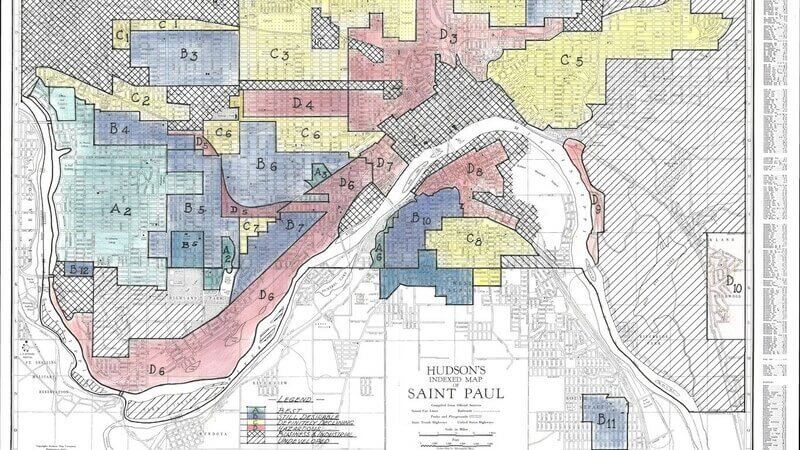
For generations, state and local governments systematically denied Black Americans access to educational resources and opportunities. It happened...
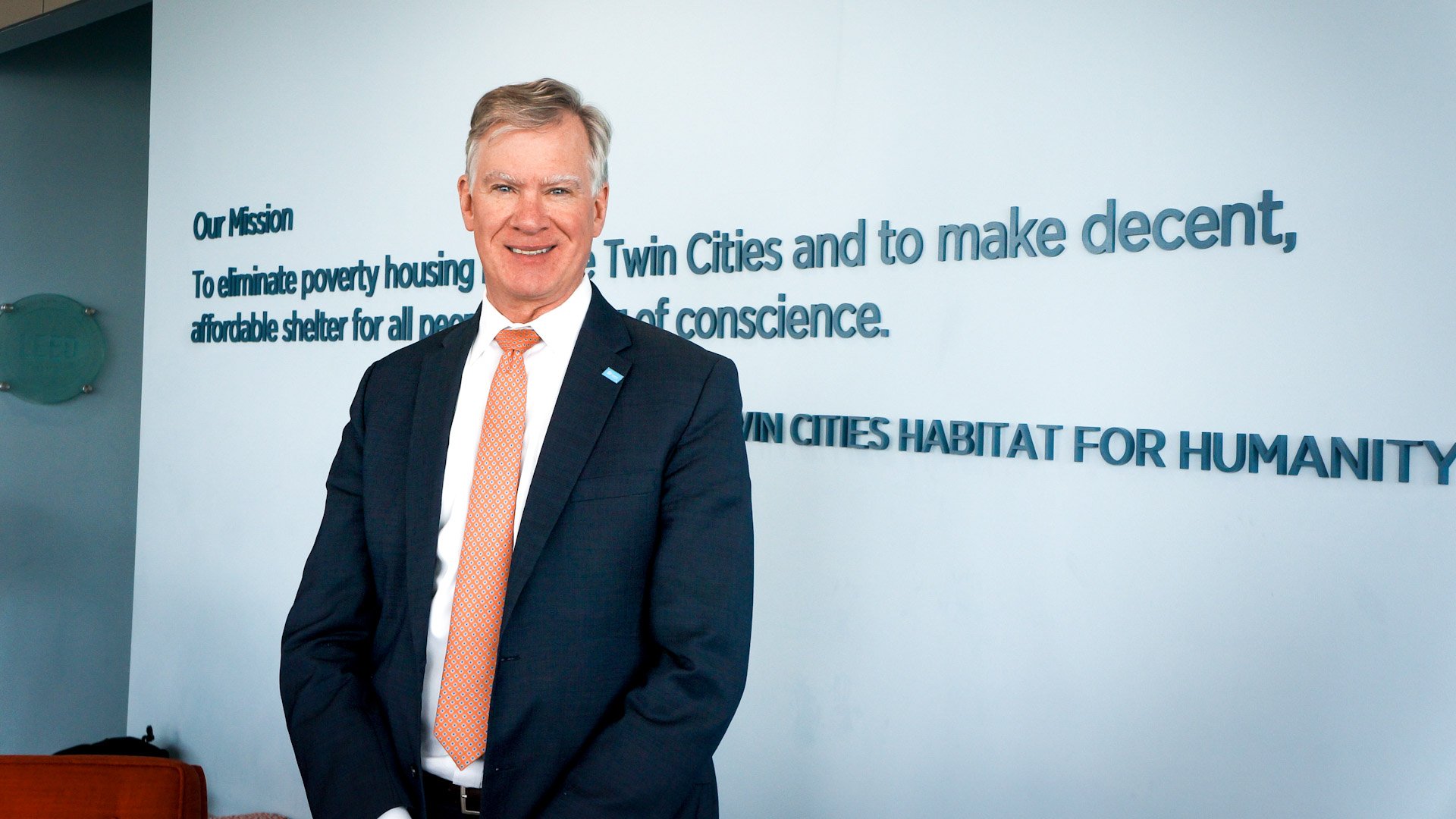
Twin Cities Habitat has a core value of Equity and Inclusion which states: “We promote racial equity and strive to increase diversity, inclusion, and...
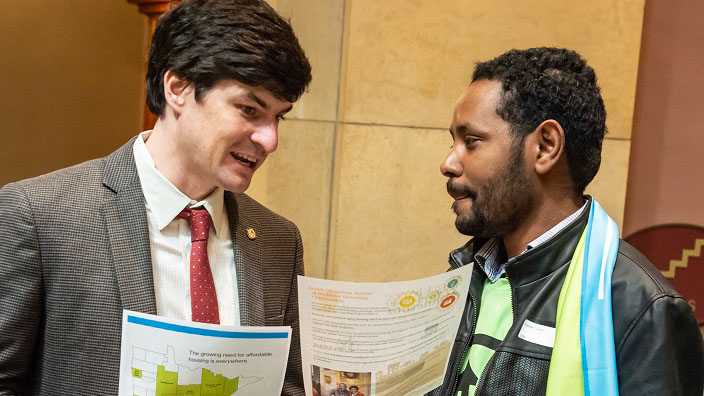
Co-written by Emily Kirkevold and Muluk Eltag, Policy & Advocacy Coordinators The Twin Cities' housing shortage has caused rising housing prices and...